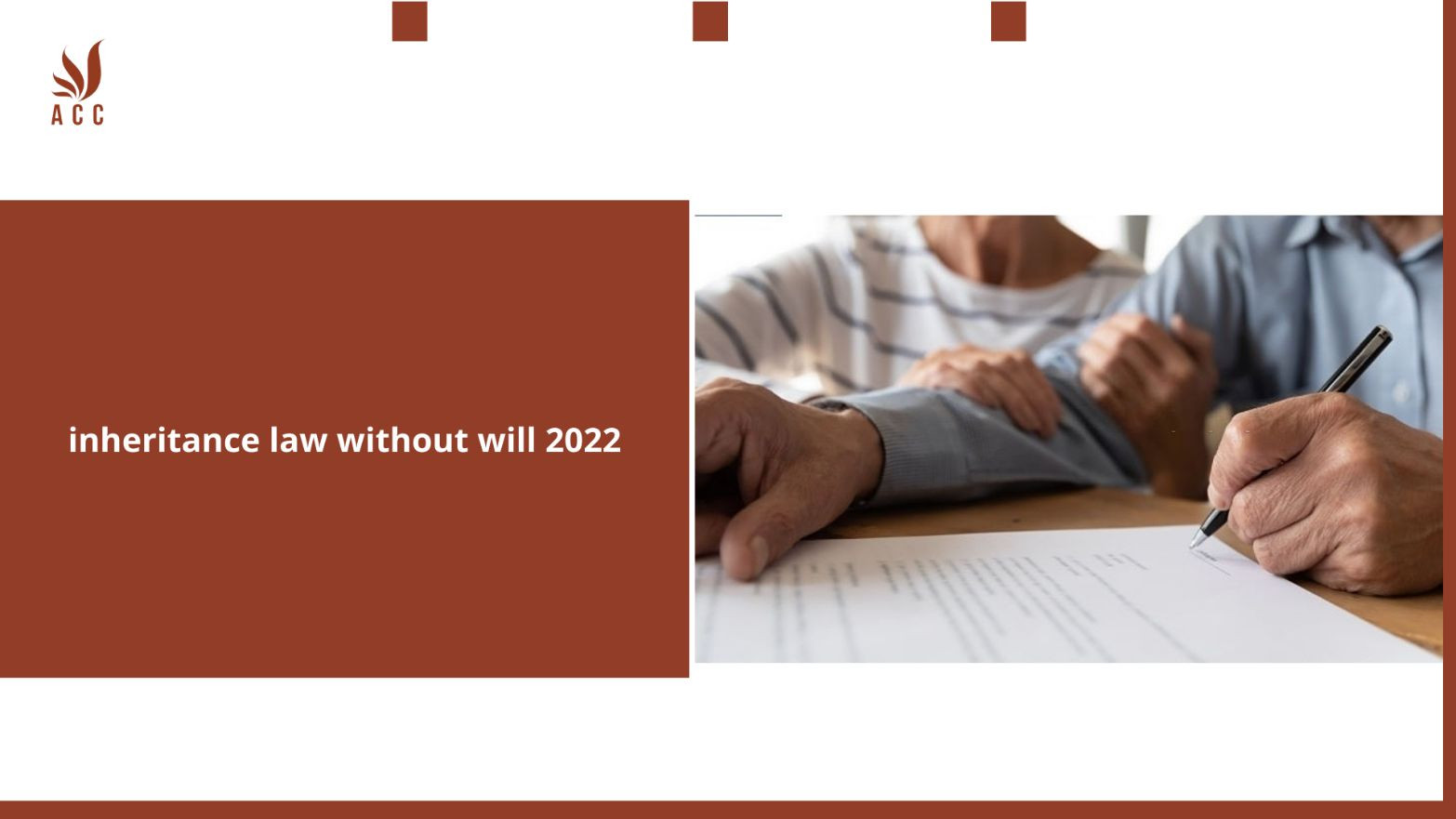Inheritance laws without a will, often referred to as intestate succession laws, dictate how a person's assets and estate are distributed when they pass away without a valid will in place. These laws vary by jurisdiction, and the specific rules can change over time, including in 2022. Below, I'll provide a general overview of how intestate succession laws commonly work in the absence of a will:
1. Spouse's Share:
In many jurisdictions, a surviving spouse is typically entitled to a significant portion of the deceased person's estate. The exact share varies by jurisdiction but may include the entirety of the estate if there are no surviving children or other close relatives.

2. Children's Share:
If there are surviving children but no surviving spouse, or if the estate is not entirely left to the spouse, the children may inherit a portion of the estate. The share per child typically depends on the number of children.
3. Parents and Siblings:
In the absence of a spouse and children, parents, and siblings may be next in line to inherit. The order of priority for these relatives can vary by jurisdiction.
4. Extended Family:
In the absence of immediate family members, more distant relatives such as grandparents, aunts, uncles, and cousins may be entitled to inherit under intestate succession laws.
5. Escheat:
If no living relatives can be located or identified, the estate may escheat, meaning it reverts to the state or government.
It's important to note that the specific rules for intestate succession can vary widely based on jurisdiction, and some jurisdictions have complex formulas for distributing assets when there are surviving relatives. In addition, some jurisdictions have different rules for community property states, where property acquired during a marriage is considered joint property.
6. Q&A
Q1. What happens if someone dies without a will in 2022?
If someone dies without a will in 2022, their estate will be distributed according to the laws of intestacy, which are the default rules set by the jurisdiction to determine the distribution of assets when there is no valid will. These laws vary between countries and states, but generally, they prioritize spouses, children, and other close relatives as beneficiaries.
Q2. Who inherits the assets if there is no will?
The specific order of inheritance without a will depends on the jurisdiction's laws of intestacy. In many cases, the surviving spouse or civil partner will receive a significant portion, with the remaining assets being divided among the deceased person's children. If there is no surviving spouse or children, other relatives, such as parents, siblings, or more distant relatives, may become eligible to inherit.
Q3. Can non-relatives inherit from an estate without a will?
In the absence of a will, non-relatives typically do not have automatic inheritance rights. The laws of intestacy generally prioritize blood relatives, such as spouses, children, parents, and siblings, as beneficiaries. However, there may be exceptions or provisions in specific jurisdictions that allow for non-relatives, such as close friends or domestic partners, to make a claim on the estate. Consulting with a lawyer or legal professional familiar with the laws of intestacy in your specific jurisdiction is advisable to understand the potential rights and limitations of non-relatives in inheriting an estate without a will.
Q4. Can the distribution of assets without a will be contested?
Yes, the distribution of assets without a will can be contested under certain circumstances. Disputes may arise if individuals believe that the laws of intestacy do not accurately reflect the deceased person's true intentions or if there are allegations of unfairness or impropriety in the distribution. However, contesting the distribution of assets without a will can be complex, and the likelihood of success may vary depending on the jurisdiction and the specific circumstances of the case. It is advisable to consult with a lawyer or legal professional experienced in estate disputes to assess the viability of contesting the distribution and navigate the legal process effectively.
Nội dung bài viết:






Bình luận